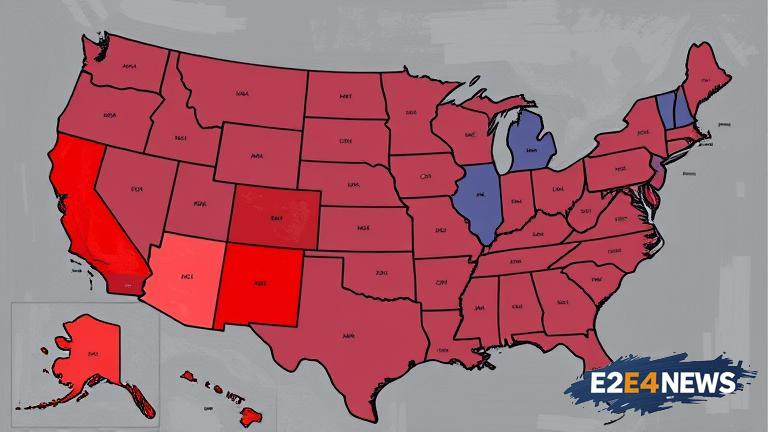The United States is witnessing a significant escalation in the ongoing battle between Democrats and Republicans, with the contentious issue of gerrymandering taking center stage. Gerrymandering, the practice of manipulating electoral district boundaries to favor one party over the other, has long been a point of contention in American politics. Recently, the debate has intensified, with Democrats and Republicans engaging in a war of words over the issue. Democrats have accused Republicans of using gerrymandering to disenfranchise minority voters and maintain their grip on power, while Republicans have countered that Democrats are attempting to use the courts to redraw district boundaries in their favor. The issue has sparked a series of heated exchanges between lawmakers, with some Democrats calling for an end to gerrymandering altogether. Republicans, on the other hand, argue that the practice is a legitimate tool for maintaining political power and that Democrats are simply trying to use the courts to get around the democratic process. The debate has also spilled over into the courts, with several high-profile cases challenging the constitutionality of gerrymandered district boundaries. In one notable case, the Supreme Court ruled that federal courts have no authority to hear cases involving partisan gerrymandering, effectively giving state legislatures a free hand to draw district boundaries as they see fit. The ruling has been widely criticized by Democrats, who argue that it will lead to even more egregious examples of gerrymandering in the future. Despite the controversy surrounding the issue, many experts believe that gerrymandering is likely to continue to play a major role in American politics for the foreseeable future. This is because the practice is deeply ingrained in the political culture of the United States, and many lawmakers see it as a necessary tool for maintaining power. Furthermore, the issue is closely tied to the broader debate over voting rights and electoral reform, with many advocates arguing that gerrymandering is just one symptom of a larger problem. As the debate over gerrymandering continues to unfold, it is likely to have significant implications for the future of American politics. The issue has already begun to play a major role in the 2024 presidential election, with several Democratic candidates calling for an end to gerrymandering as part of their platforms. Republicans, on the other hand, have largely avoided the issue, preferring to focus on other topics such as the economy and national security. Despite this, the issue is likely to remain a major point of contention between the two parties, with each side accusing the other of attempting to manipulate the electoral system for their own gain. In addition to the presidential election, the issue of gerrymandering is also likely to play a major role in several high-profile congressional races. In many of these races, the boundaries of the electoral districts have been heavily gerrymandered, leading to accusations that the outcome of the election is already predetermined. This has led to widespread criticism of the electoral system, with many arguing that it is in need of significant reform. The issue of gerrymandering has also sparked a wider debate over the role of money in politics, with many arguing that the practice is closely tied to the influence of special interest groups. These groups, which often have significant financial resources at their disposal, are able to exert considerable influence over the electoral process, leading to accusations that the system is rigged in their favor. As the debate over gerrymandering continues to unfold, it is likely to have significant implications for the future of American democracy. The issue has already begun to erode trust in the electoral system, with many voters feeling that the outcome of elections is predetermined. This has led to widespread disillusionment with the political process, with many arguing that significant reforms are needed in order to restore trust in the system. Despite the challenges posed by gerrymandering, many advocates remain hopeful that the issue can be addressed through a combination of legislative and judicial action. Several states have already taken steps to address the issue, implementing reforms such as independent redistricting commissions and stricter rules governing the drawing of electoral district boundaries. These reforms have been shown to be effective in reducing the impact of gerrymandering, and many advocates are calling for similar reforms to be implemented at the federal level. Ultimately, the issue of gerrymandering is likely to remain a major point of contention in American politics for the foreseeable future. However, by working together to address the issue, lawmakers and advocates may be able to create a more fair and representative electoral system, one that truly reflects the will of the American people.
